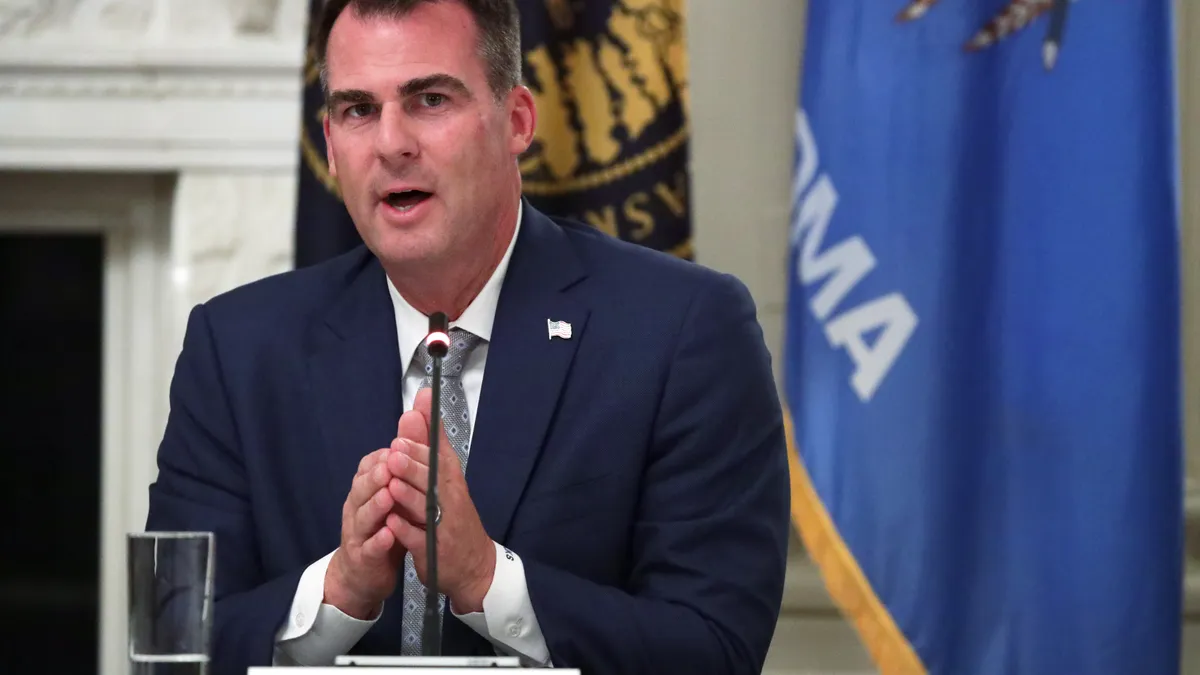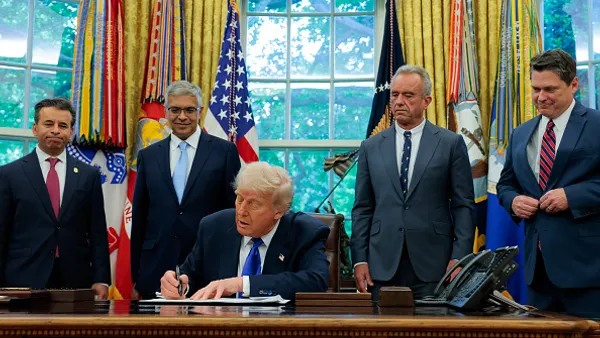Dive Brief:
- Oklahoma’s chief law enforcement officer and governor are at odds over the nation’s first religious charter school, after state Attorney General Gentner Drummond challenged the school's constitutionality in a lawsuit filed Friday.
-
Drummond, in a statement, said taxpayers are "being compelled to fund Catholicism" and that the move opens the door to publicly funded schools of other faiths. Gov. J. Kevin Stitt, however, labeled the lawsuit a "political stunt" and said creating St. Isidore of Seville Catholic Virtual Charter School "is a win for religious and education freedom in Oklahoma."
-
The Oklahoma leaders' stark division is a microcosm of the nationwide controversy over the constitutionality of publicly funded religious schools — and the outcome could set the tone for how other states approach the issue. Drummond said he would be willing to take the issue to the U.S. Supreme Court if necessary.
Dive Insight:
The lawsuit comes 10 days after the Oklahoma Statewide Virtual Charter School Board approved St. Isidore's contract by a 3-2 vote, clearing the way for a fall 2024 launch of the school.
Prior to the vote, the board discussed using the contract as a template for future faith-based schools.
In his lawsuit, Drummond challenged the board's decision under the First Amendment as well as under the state's constitution, which prohibits direct or indirect sectarian control of public schools.
In August, public school advocates and parents also took the virtual charter school board to court for violating state law. That case remains pending.
The board has, on multiple occasions, acknowledged the divisive nature of its decision.
Both those in favor of and opposed to publicly funded religious schools "pretty much said publicly they intend to sue this board," board Chairman Robert Franklin said in April, when the board met to review the charter school's application prior to its contract approval this month.
Franklin was one of two board members to vote against the virtual school's contract approval. Prior to his vote, he acknowledged the challenge in "trying to find this pathway of how the state’s constitution and the nation’s constitution find a way to live together."
The state's Oklahoma Charter Schools Act requires that a charter be "nonsectarian in its programs, admission policies, employment practices, and all other operations." It prohibits authorization of a charter that "is affiliated with a nonpublic sectarian school or religious institution."
However, two U.S. Supreme Court decisions paved the way for the school's establishment. Together, Carson v. Makin in 2022 and Espinoza v. Montana Department of Revenue in 2020 give private institutions access to public funding regardless of their religious use or status.
The Oklahoma move is the first to come under public scrutiny in the wake of those decisions.
At the time of the 2022 decision, public school advocates worried the justices had left the door open for just this type of scenario.
Will Stancil, a research fellow at the Institute on Metropolitan Opportunity who focuses on civil rights law and policy education, said when Carson was decided that he expected the two decisions to also prompt religious private schools to reorganize as charter schools as a way to tap into public funding.






 Dive Awards
Dive Awards




